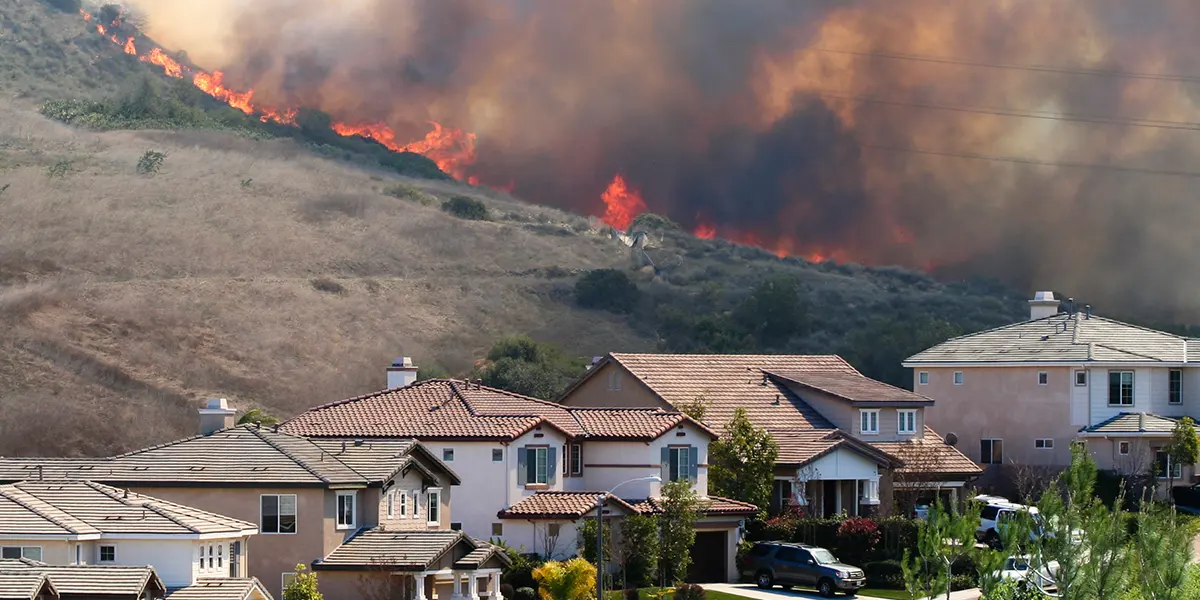Like several financial regulators across the world, the US Federal Reserve is increasing its efforts to gauge climate risks for banks with climate scenario analysis. Separate from existing annual bank stress tests conducted by the Federal Reserve, climate scenario analyses are distinct as they assess the outcomes of plausible financial risks in the financial system exploratory in nature and do not have capital consequences to enable the banking system to understand how climate-related financial risks manifest and what necessary risk management preparations are needed.
Financial regulators face substantial risks of moving too slowly or too fast when understanding climate-related risk exposures for entire financial systems. The Federal Reserve, which has often lagged on climate risk action, is implementing an exploratory micro-prudential climate scenario analysis pilot in early 2023 with six of the largest US banks. Including Bank of America, Citigroup, Goldman Sachs, JPMorgan Chase, Morgan Stanley and, Wells Fargo to deepen the Federal Reserve’s understanding of climate-related scenarios on specific portfolios and business strategies for banks.
However, industry advocates for tougher rules to assess climate risk believe the Federal Reserve needs to impose faster and heavier restrictions on banks. "Simply having a better understanding of the risks is not enough. The Fed and other federal banking agencies must incorporate identified climate-related financial risks into banks’ overall supervisory assessments and ratings to ensure the banks are addressing the risks instead of merely pointing them out," as stated by Phillip Basil with the advocacy group Better Markets. To even conduct climate scenario analysis, institutes face severe obstacles when conducting climate scenario analyses in terms of utilising climate-related data, diverse approaches, and accurate modelling as regulators increase their unprecedented plans to review banks’ preparedness for climate change to implement climate scenario analysis to be a standard procedure in investment decisions.
Climate-Scenario Challenges
As a new practice for different financial institutions, climate scenario analyses are a challenging component of understanding and preparing for climate change. A profound challenge is standardisation. Climate scenario analyses should not follow a one-size-fits-all climate stress test approach. Michael Hsu said there is an urgent need for large banks "to operationalize scenario analyses and to prioritise diverse approaches to such efforts over one-size-fits-all stress tests." Different financial institutes have individual risk exposures based on their own geographical location and business line. The implementation of standardising scenarios is complex.
Despite regulators not making it clear about the intention of taking climate risk into capital planning, banks are concerned climate scenario analysis may be taken into account when considering banks’ capital requirements and the need to assess how resilient its strategy could be to several climate change responses. These remain the weakest areas of reporting for companies. Furthermore, timing the implementation of climate scenario analysis is of the essence.
It is vital that companies shouldn’t quantify scenario analyses too early by turning quantitative figures to substantiate future claims in the same context as scenario modelling, financial modelling and climate projections. The complexity of utilising the climate scenario analysis tool across the global financial system is acknowledged by Todd Phillips, the director of financial regulation and corporate governance at the Center for American Progress, “with climate scenario analysis, it gets a lot more complicated” as “the climate science is always developing and there’s just so much that is unknown about what will happen between now and the next 20 or 30 years.”
Considering that climate scenario analyses need to take into account gaps in climate science, continued knowledge-building on scenarios is critical to understand the implications of climate models. While there is an urgent need for action to measure this new type of risk, Michael Hsu believes that both the industry and its watchdogs need to approach the emerging issue with "a clean sheet of paper and an open mind."

The Need for Climate-Related Data
Data is instrumental to climate scenario analysis methods to help create frameworks for climate risk oversights. However, regulators are constrained by companies providing reliable climate-related data to evaluate the physical and transition risks of financial institutes. Exampled by the Bank of England that stated its new climate scenario analysis is still in its infancy and there are several notable data gaps. Despite climate-related data collection being an iterative and gradual process, the expansion of regulatory returns to attain more specific climate-related data on a regular basis, pressure for reports to include forward-looking information, such as financial institutions’ transition plans as a result of scenario analysis and mandatory climate disclosure rules for companies will help plug climate-related data gaps.
Climate-related data for regulators will increasingly serve as vital informational inputs into supervisory reporting and risk assessments of financial institutions' exposures to climate-related risks. It is fundamental for the data to be built upon a greater level of consistent and comparable standardised climate-related data disclosures collected across financial institutions and integrated into regular regulatory reporting requirements to ensure the increased quality of climate scenario analyses.

Climate Scenario Importance
Although remains early days for climate scenario analyses, the SEC has unveiled climate disclosure rules to enhance and standardize climate-related disclosures by large companies. The Federal Reserve and other global regulators have a large task to overcome the challenges of inducting climate scenario’s into the banking system but also play vital roles in understanding climate-related risks that are a natural prerequisite for system-wide climate risk assessments.
For financial institutions, the practice of climate scenario analyses could lead to more climate-related information and empower results for investors while regulators increasingly mandate these exercises but there are several large challenges ahead needed for financial institutions to overcome for this tool to be most impactful.
...with climate scenario analysis, it gets a lot more complicated."
Levelling up
When combined with other climate risk assessments, the benefits of climate scenarios are enormous when assessing climate-related risk. Despite banks continually improving their tools and resources to advance knowledge bases’ and resilience to climate-related shocks, the journey for financial organisations to conduct climate scenario analyses is a complex process.
Understanding that it is not a stand-alone exercise and needs to be embedded into a strategic process, Climate X has developed a range of free resources to help organisations with scenario analysis that are already being used by major banks and regulators to enable organisations to easily overcome challenges of climate scenario analyses integration into their climate risk assessments and enable them to be more future proof against climate risks.
Get in touch with us to find out more.





